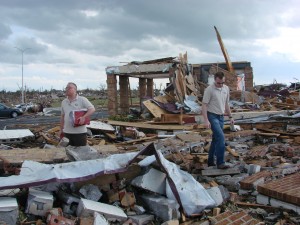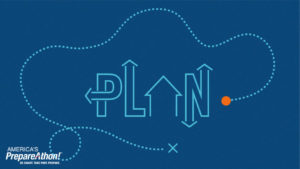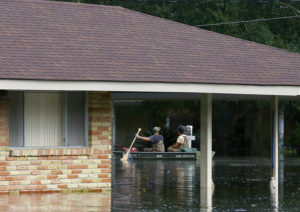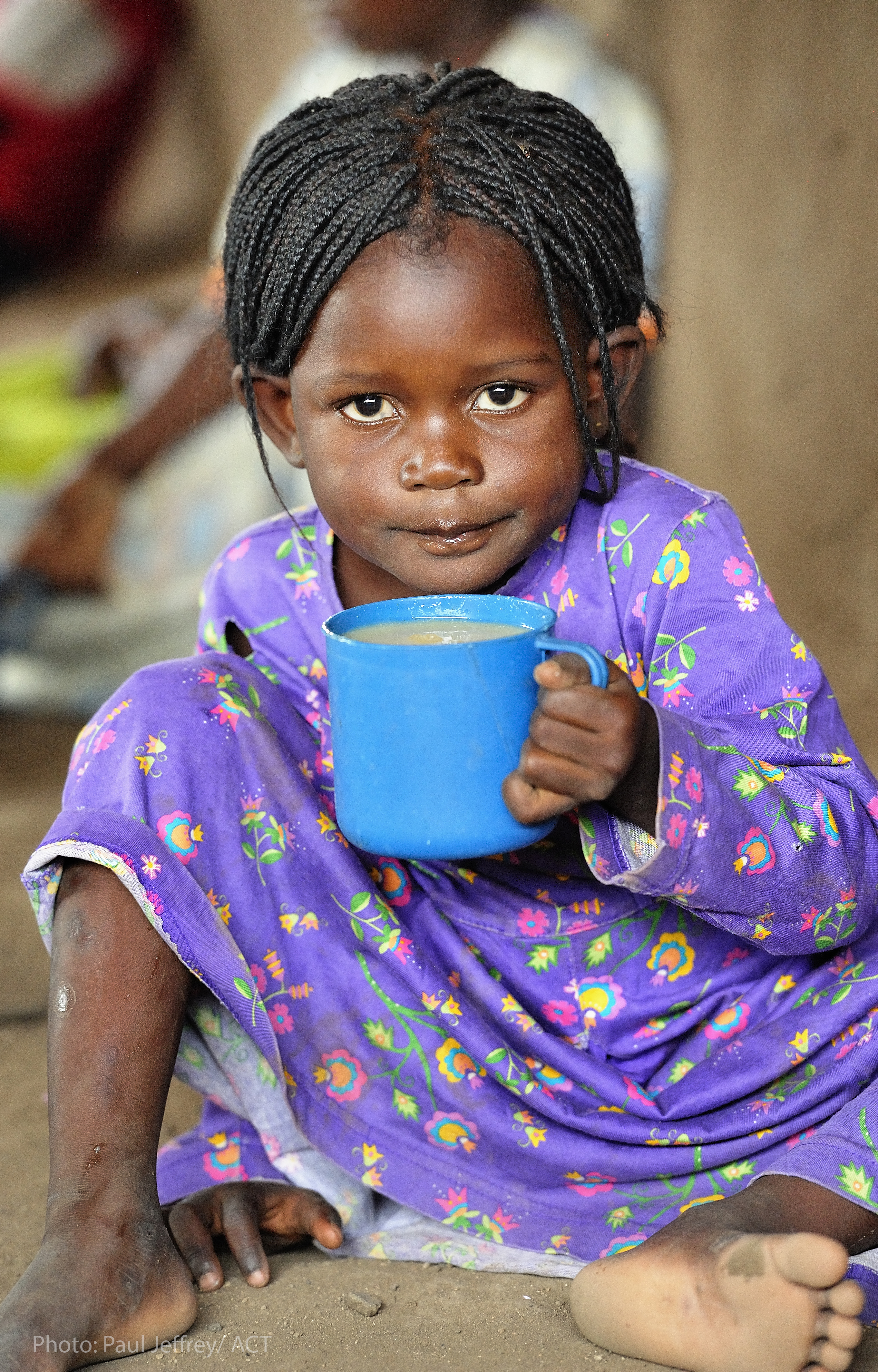Today is the last day of National Preparedness Month. Just because the month is ending, doesn’t mean the work of being prepared for disaster ends. With this in mind, we want to take the time to highlight 5 tips that can be useful to congregations.
Top 5 Tips to Prepare Your Faith Community for a Disaster – By Michael Stadie
A minister once shared with me the story of how he learned the hard way to be prepared for a disaster. He told me that every night the administrative assistant of the congregation would back up the day’s work, financial records, bulletins, newsletter, and anything else that was done that day. She then put the back up next to the computer on her desk. This worked out very well until the night when a fire destroyed the church office, it took out the computer and the backup. After learning the hard way, he told me that once they rebuilt, he made sure there was a weekly computer backup that was kept off site.
Sadly, it is only after a disaster strikes, no matter what the type, that a faith community realizes it should have done something to prepare for a disaster. And often if a leader wants to encourage the faith community to prepare, if they find support in doing so, they are not sure where to look for resources.
Because of this, Lutheran Disaster Response has prepared a Congregational Disaster Preparedness Guidebook that is free to download by anyone. To quote the guidebook, the manual “outlines a step-by-step process for congregations to create their unique preparedness plan.” It also provides information on the long-term recovery process, worship following a disaster, emotional and spiritual care, and links to other resources.
For those looking to start the conversation about preparedness in their faith community, here are five tips Lutheran Disaster Response offers:
Communication Strategy
Communication is essential in times of disaster, however, it may not always be as simple as a phone call. Power and telephone lines are often down after a disaster causing disruptions in communication. It is important that your faith community has a plan about how to communicate with one another when a disaster strikes. In the first few days following a disaster, there is a lot of chaos and rumors. Having a communication plan in place will help your faith community be aware of what is really happening. While faith communities often have home phone numbers, a list of cell phone numbers is essential and if the person can receive text message can be a valuable asset following a disaster. It is also helpful to have a “phone tree” where with just a few calls, the faith community leaders can disseminate information quickly. And of course, posting information on the faith community’s website is also a very good way to let folks know the status of the disaster recovery efforts.
Decision-Making Process
Having a written description of how decisions are made is essential to being prepared for a disaster. Having this in place will assist the congregation to move forward in its recovery efforts. On a day-to-day, basis, most decisions are made by the minister, a committee or the governing board. However, in a disaster situation, the minister may not be the most experienced to handle the rebuilding efforts. And they will be needed to provide spiritual and emotional care, especially if members of the faith community were directly impacted by the disaster. Along with the formal structures of decision making, look to your membership. Is there an insurance agent that can help navigate the process of making a claim? Is there a contractor who can help manage the rebuilding process? It is important to use the gifts in your faith community, especially following a disaster.
Inventory and Insurance
It is important to be aware of the church’s assets, important documents and insurance coverage long before a disaster strikes. A faith community needs to regularly review its insurance coverage. All too often, people find when they add the cost of the contents along with the building, they are underinsured. In order to speed up the claims process, it is recommended to take pictures of the worship space as well as other parts of the building. This is especially important if there are unique items such as statues, carvings or stained glass. Making a video of these items may be easier. Most smart phones have this capability, which only makes this process easier.
Emergency Operations
Any number of emergencies or disasters can happen when the building is in use by the faith community or others. Basically, plans need to be in place to do one of two things; shelter in place or evacuate.
If you look the next time you are a hotel or public buildings, notice how they post evacuation routes as well as designated shelter. Basic emergency plans and instructions should be posted prominently near light switches or doorways so that anyone can easily see how to evacuate and where to seek shelter without having to search for someone in charge. Many faith communities also find it helpful to have near entrances a map of the facility showing where the utility shut-offs are located as this will assist the first responders to know how to secure the building after a disaster.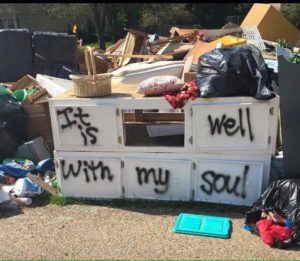
Congregational Relationships and Involvement
When a disaster occurs, it is important that a community come together to take care of each other. If the faith community is not directly affected by a disaster, consider joining the community to provide temporary relief and even long term recovery assistance to those impacted by the disaster. Such opportunities may surface as requests from outside organizations, obvious needs of neighbors, awareness of members of the congregation, etc. Building relationships with disaster response agencies in your area and/or other faith-based organizations before a disaster will help your faith community mount efficient and effective responses addressing the actual needs of your community. And having a plan as to how you will respond in coordination with other community partners will allow your faith community to be more efficient in its efforts and insure there is no duplication of services.
An excerpt from Synod Congregations Use Social Media to Rally Response to Floods By: Rev. Dr. Joelle Colville-Hanson
In late August Decorah, Spillville, Elkader, and surrounding areas were hit with heavy rains that caused flash flooding.
The onslaught was swift and unexpected but Northeastern Iowa Synod congregation leaders and members were just as swift to respond with shelter, food, volunteers as well as working with Lutheran Services in Iowa to develop a relief fund for unmet needs.
A month later more rain caused the Cedar, Shell Rock, and
Wapsipinicon Rivers to flood the areas including Waverly, Janesville, Shell Rock, Clarksville, Plainfield, and Greene as well as the farms and hamlets in between.Again local congregations sprang into action, providing volunteers to sandbag and clean up, meals to volunteers and donations of cleaning supplies.
Again, Social Media was crucial in getting the word out quickly to gather volunteers to respond.
These suggestions are by no means exhaustive; but they can help stimulate conversation about what else a faith community can do in order to prepared for a disaster. To learn more about Congregational preparedness, download the Congregational Disaster Preparedness Guide.
Originally Written for the Institute for Congregational Trauma and Growth (ICTG)
Michael Stadie is the Program Director for Lutheran Disaster Response – U.S.
Be a part of the response:
Pray
Continue to pray for all affected by disasters, may God’s healing presence comfort them in their time of need.
Give
Thanks to generous, undesignated donations, Lutheran Disaster response is able to respond quickly and effectively to disasters around the globe. Your gifts to Lutheran Disaster Response will be used where there is the greatest need.
Connect
To learn more about global migration and what Lutheran Disaster Response is doing:
- Like Lutheran Disaster Response on Facebook.
- Follow us on Twitter.
- Visit our website at LDR.org
- Sign up to receive Lutheran Disaster Response alerts

